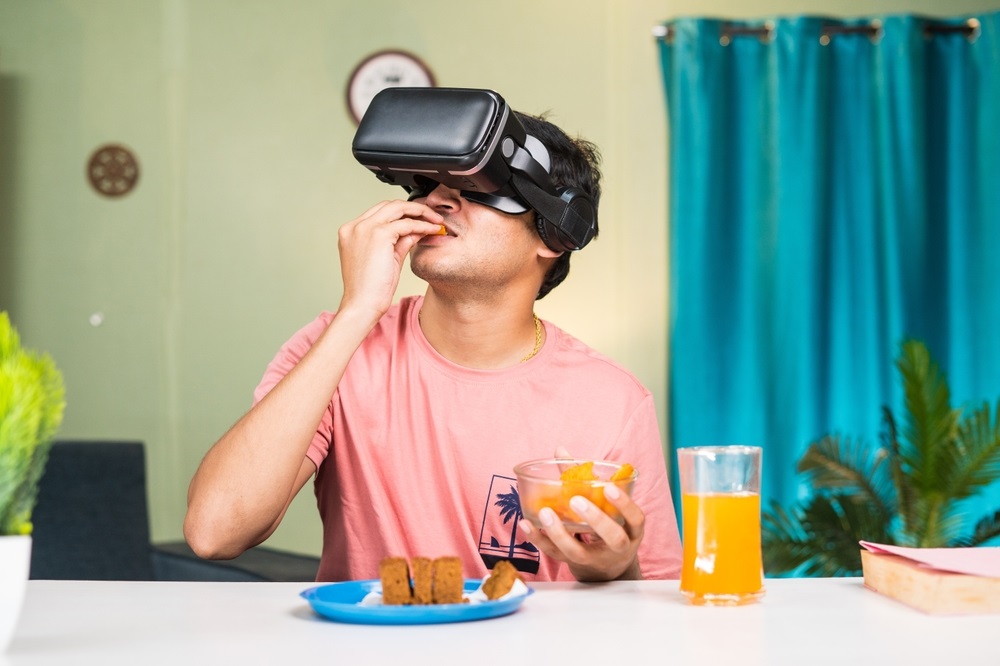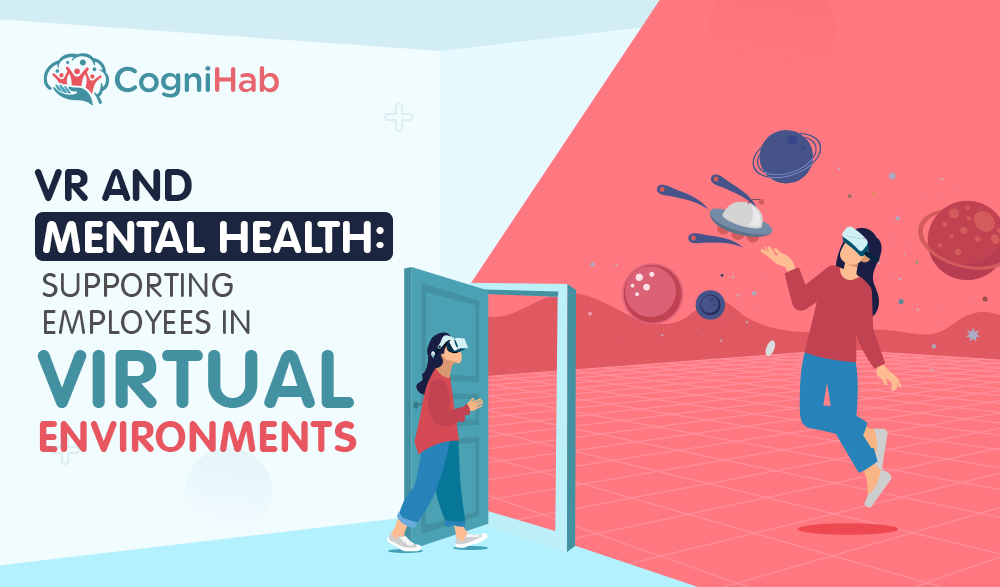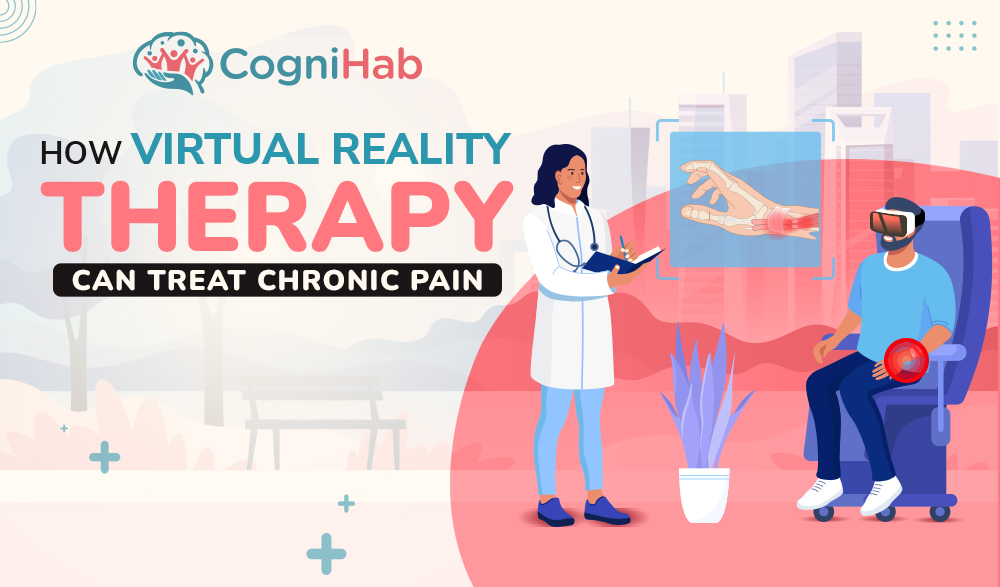Virtual Reality in Healthcare - How Does it Work?
Virtual reality is not only here to stay but is also transforming the healthcare industry, and redefining the way conventional healthcare was perceived. VR has a multitude of applications, capable of benefiting both the caregivers and the consumers in the health and healthcare sector.
Hence virtual reality is being used extensively to train and support healthcare experts, to heal patients in order to ensure a speedy recovery and change millions of lives with this technological advancement.
Healthcare industry has evolved as one of the biggest adopters of virtual reality which includes benefits such as phobia treatment, skill training, robotic surgery, surgery simulation, pain management etc.
Digital inventions such as VR are rapidly changing our way of lives, ushering a process of significant improvement in our daily lives, and well-being.
To be precise, virtual reality incorporates the use of computer technology to orchestrate a simulated environment where users get involved and stay immersed in a virtual environment.
This virtual environment is perceived by the users as the reality thus, initiating a faster recovery through better pain management and increasing the patient’s endurance.
The most commonly acknowledged advantages of virtual reality is its flexibility and the broad applications of this technology. This is the prime reason that virtual reality is so widely consolidated in the metaverse in healthcare industry, for it can be moulded and tweaked to adapt to diverse medical niches.
VR has the potential to improve patients suffering from autism, chronic pain and several other health conditions. Healthcare fields ranging from psychology, medicine, neuroscience, motor and cognitive skills rehabilitation, mental health therapy etc are some examples reaping the benefits of VR technology.
Virtual Reality Solution For Healthcare
Some of the key virtual reality solutions for healthcare are listed here.
Medical Education
Medical education and training have been using VR simulation technologies for a very long time. Products combining 360-degree video and 3-D interactive content are being developed by major VR based companies to provide premium quality learning programmes for physicians and students.
This technology allows the students to get first-hand experience in practising critical life-saving surgeries or procedures in a risk-free environment. This helps in enhancing their skills by getting proper feedback during the process.
Cognihab has expanded its services and emerged as one of the leading companies pioneering the utilisation of virtual reality to design high-quality medical equipment and training.
Diagnostic
VR is also being utilised as an effective diagnostic tool because of its flexibility and various usability, which help healthcare experts and physicians to accomplish an accurate diagnosis. VR in diagnostics is gaining popularity, for the pain-free experience that it provides by eliminating any kind of invasive techniques from the procedure.
Cognihab’s unique methods have been proven to be effective for children with cerebral palsy. The cerebral palsy suite covers various cognitive games, exercises, and journeys designed to improve the patient’s mobility and all with a pain-free experience.
VR is also being utilised as an effective diagnostic tool because of its flexibility and various usability, which help healthcare experts and physicians to accomplish an accurate diagnosis. VR in diagnostics is gaining popularity, for the pain-free experience that it provides by eliminating any kind of invasive techniques from the procedure.
Cognihab’s unique methods have been proven to be effective for children with cerebral palsy. The cerebral palsy suite covers various cognitive games, exercises, and journeys designed to improve the patient’s mobility and all with a pain-free experience.
Treating Mental Illness
VR is also used to treat the patient’s anxiety and panic attacks by providing innovative ways to maintain calmness and relaxation. It provides adaptable, low-risk solutions to treat mental illness at a lower cost. VR is used to generate scenarios of persuasive stimulation of extreme psychological difficulties, as it has the unique ability to transport patients anywhere without physically being there in reality.
Gone are those days where a therapist had to accompany patients physically to various places in order to adapt them to different situations. Moreover, certain situations that are impossible to attain in regular life, such as flying or time travel can be effectively organised through virtual reality technology within the confinement of a specific space.
Cognihab aims to treat mental illness by providing VR based healthcare solutions for those suffering from depression and anxiety. These modules have been tried and tested by undergoing years of research and innovation. Consequently, they have shown significantly favourable results throughout the patient’s treatment cycle.
Pain Management
Healthcare experts have incorporated various cognitive distraction methods, while treating multiple painful experiences and sensations for quite some time. The parts of the brain responsible for the feeling of any kind of pain are called somatosensory cortex and insula.
It has been noticed that these parts remain less active which significantly reduce the sensation of pain when a patient is immersed in the world of virtual reality.
Moreover, VR can help patients endure painful medical procedures. Hence, virtual reality speeds up the recovery process effectively by keeping patients focused and engaged through interactive virtual reality games and exercise. virtual reality rehabilitation has a huge potential in the process of pain management as a drug-free pain management alternative.
Healthcare experts have incorporated various cognitive distraction methods, while treating multiple painful experiences and sensations for quite some time. The parts of the brain responsible for the feeling of any kind of pain are called somatosensory cortex and insula. It has been noticed that these parts remain less active which significantly reduce the sensation of pain when a patient is immersed in the world of virtual reality.
Moreover, VR can help patients endure painful medical procedures. Hence, virtual reality speeds up the recovery process effectively by keeping patients focused and engaged through interactive virtual reality games and exercise. Virtual reality has a huge potential in the process of pain management as a drug-free pain management alternative.
Cognihab has collaborated with leading physicians and therapists to develop tailor-made exercises and scenarios to cater to the therapeutic needs of the patients.
Faster Recovery In Physical Therapy
Patients who have experienced and survived a stroke or traumatic brain injury, and have lost certain ability to function properly, virtual reality through its improved rehabilitation methods are a blessing for them. Cognihab brings a gamified approach in the physical therapy treatment for such patients. They have customised virtual reality-based games and exercises for body part rehabilitation, that improves body balance and postures.
The two rehabilitation suites namely the stroke rehabilitation and cancer rehabilitation are the world's leading immersive all in one rehabilitation solution co-created with Indian Spinal Cord Injury Center, AIIMS, and Lady Harding hospital.
The virtual reality-based games and exercises aid the patient to perform daily activities involving upper and lower body movements in a better way. Moreover, these games are powered by real-time feedback that enhances the experience and yield more favourable results.
Patients who have experienced and survived a stroke or traumatic brain injury, and have lost certain ability to function properly, virtual reality through its improved rehabilitation methods are a blessing for them. Cognihab brings a gamified approach in the physical therapy treatment for such patients.
They have customised virtual reality-based games and exercises for body part rehabilitation, that improves body balance and postures. The two rehabilitation suites namely the stroke rehabilitation and cancer rehabilitation are the world's leading immersive all in one rehabilitation solution co-created with Indian Spinal Cord Injury Center, AIIMS, and Lady Harding hospital.
The virtual reality-based games and exercises aid the patient to perform daily activities involving upper and lower body movements in a better way. Moreover, these games are powered by real-time feedback that enhances the experience and yield more favourable results.
The Future Is Virtual Reality
These discussions are some of the examples of how Cognihab is utilising virtual reality technology to provide next-generation healthcare solutions and changing the healthcare experience for both patients and medical professionals.
The potential of virtual reality in the healthcare sector is immense. Organizations such as Cognihab are constantly striving to provide more innovative and affordable technology, to help patients rise above their physical or mental limitations and difficulties through the use of virtual reality technology. With each passing day, this technology and advanced procedures are getting widely adopted for more effective, yet interactive experiences.







